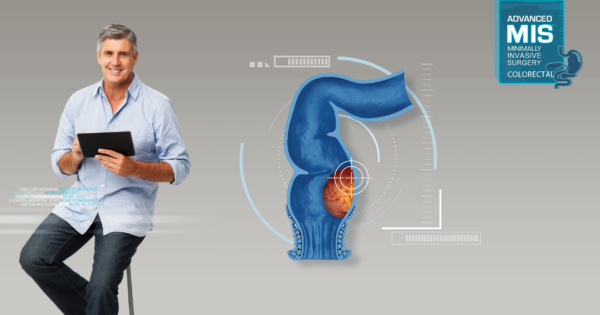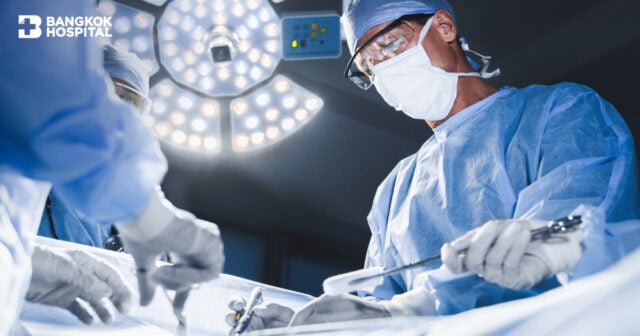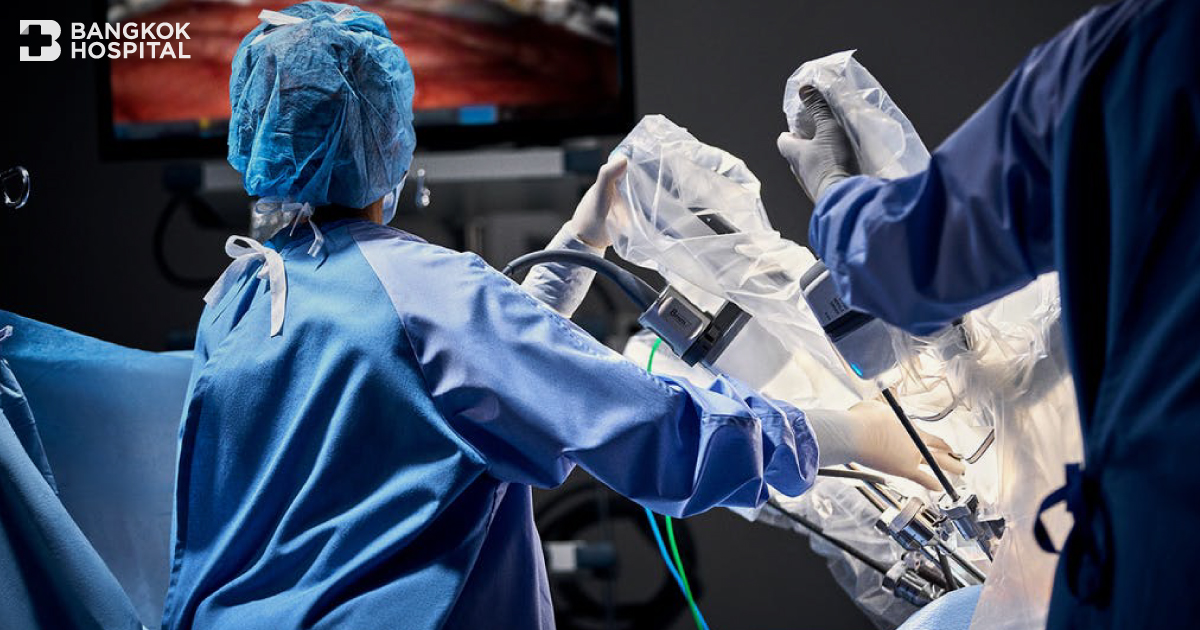
Surgery Center at Bangkok Hospital is ready to care for all patients suffering from liver diseases or liver failure condition who need liver transplants. This is a major operation – full of risks and complications – that requires extreme caution, highly experienced surgeons, state-of-the-art equipment, and a multidisciplinary team of specialists to help restore the patients’ quality of life.
Liver transplant surgery, or hepatic transplantation, is an operation to completely remove the patient’s failed liver and replace it with a healthy one from another person. Today, though liver transplantation is one of the standard treatments for several liver diseases, it remains a complicated and risky procedure both during and after surgery. Therefore, it is essential to select only suitable patients who really need a liver transplant, in order to achieve satisfactory results with minimal complications.
Why a Liver Transplant?
Liver transplant is only appropriate for treating certain types of liver disease or disorder. The following are indications of when to consider a liver transplant:
- End-Stage Liver Disease (Cirrhosis). This is when the liver stops working or works inadequately to properly support life and causes severe complications such as esophageal varices (abnormally enlarged veins in the tube that connects the throat and stomach – the esophagus), uncontrollable ascites (fluid accumulated within the abdomen) even with medication, neurological disorder caused by the liver resulting in cognitive impairments, etc.
- Fulminant Hepatic Failure. This a hepatic brain disease caused by acute liver failure. If left untreated, it will affect other organs such as heart and kidney, and can even greatly increase the risk of death.
- Early Hepatocellular Carcinoma. Research has found that, if the size of the tumor is small and not too widely spread, there is a good chance of survival with a low and acceptable rate of relapses.
- Congenital Liver Diseases. Some types of these diseases might cause abnormalities that could affect the patient’s survivability rate.
Types of Liver Transplant Surgery
There are 2 types of liver transplant surgery, categorized by the donor’s source:
- Cadaveric Liver Transplantation. This is a transplant of liver harvested from a person who is brain-dead. It is the most common procedure for adult’s liver transplant today.
- Living – Related Liver Transplantation. This is a surgery in which a portion of the liver is transplanted from a healthy living donor – such as from an adult (a parent) to a child, or from adult to adult.
Both procedures utilize different techniques that come with their own advantages and disadvantages along with possible complications, so they would be suitable for treating varying types of liver disease and conditions.
Pre-Liver Transplant Assessment
The procedure for liver transplant assessment consists of:
- Examination of overall functions of the body, heart, and lungs.
- Assessment of the liver’s function, its anatomy and tumor or cancer conditions through blood test as well as the liver’s ultrasound scan, CT Scan, or MRI.
- Screening for other types of cancer which has not been detected or shown any symptom. The process includes general examination and specific assessment – for examples, mammogram, chest (lungs) x-ray, colonoscopy (if there is any indication), etc. – along with blood tests for cancer surveillance. This step is necessary because the patient will have to take medication to suppress the immunity (immunosuppressant) which may allow cancerous condition to worsen or become more severe.
- Assessment for infections such as hepatitis, HIV, and other chronic infections that are asymptomatic. After the liver transplant, the patient will require immunosuppression which may allow the existing conditions to worsen or become more severe.
- Dental screening by a dentist. If there is any cavity, it must be treated before the transplant.
- Mental health assessment by a psychiatrist to determine the patient’s capability for self-care or to follow medical guidelines consistently.
- The patient must stop drinking alcohol for at least 6 months before the surgery, except in the case of acute liver failure when alcohol consumption must cease immediately after the surgery; as alcohol will reduce the liver’s ability to function and can cause cirrhosis.
After all the assessments are completed, the specialist will determine whether or not the patient can undergo a liver transplant surgery. If so, our Surgery Center will contact the Thai Red Cross Society for allocation of liver donation.
Pre-Liver Transplant Surgery
- When a liver is allotted, the patient will be contacted for immediate procedure since the liver cannot tolerate ischemia for a long period of time.
- The patient must abstain from water and food as advised, and come to the hospital to prepare for the surgery.
- The procedure may take between 4 – 12 hours, during which the patient will be closely monitored by a team of surgeons, anesthesiologist, and a team of surgical nurses.
Post-Liver Transplant Care
- After the liver transplant, the patient will be monitored closely; as the nasogastric and saline tubes will still be retained, along with lymphatic or serosanguineous drainage from the abdomen.
- When the patient’s condition has improved, all the tubes will be removed. The doctor will provide the patient and their family with pertinent information about caring for the patient after they leave the hospital.
Complications of Liver Transplants
- During and after the liver transplant surgery. Since the liver is a large organ which has a lot of blood supply, there is a possibility of substantial blood loss, abdominal hemorrhaging, and infection, etc.
- Graft Rejection. The patient’s immune system will release antibodies to attack the newly replaced liver. Therefore, transplant patients will need to take immunosuppressants for the rest of their lives to reduce rejection rate.
- Graft Nonfunction / Dysfunction. There are also various different causes depending on quality of the graft and factors surrounding liver transplantation.
- Hepatic Artery Thrombosis. During surgery, blood vessel from the failed liver will be cut and then reconnected to the new liver. There is a chance for blood clot in both portal vein and hepatic artery. This varies depending on the type of liver transplant.
- Biliary Obstruction or Leak. Similarly, the bile duct will be removed from the failed liver and reconnected to the graft. So, there is another possibility for blood clot or leakage.
- Risk of Hepatitis. This can occur if the patient already carries the virus before the surgery.
Although liver transplant is a very difficult and complicated procedure, with proper surgery and treatment, the result is likely to be satisfactory. After the surgery, the patient’s quality of life can be restored with an encouraging long term survival rate.





















